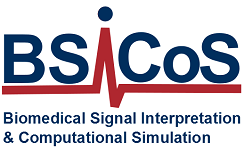Previous studies showed that astronauts suffer from misalignment of sleep and circadian rhythms during spaceflight, with possible impairments of health, alertness, and performance. Besides anecdotal data exist on the possible increased risk of cardiac dysrhythmias during spaceflight, a first mechanistic link between endogenous circadian rhythms and cardiac electrical instability through changes in QT duration, most often associated with sudden cardiac death in humans, has been demonstrated in an animal model. In addition, our results from previous bed rest studies showed an increase in ventricular repolarization heterogeneity, in particular when a gravitational field is restored after 60 days of head‐down bed rest, that underline the possibility of increased risk of developing arrhythmias. These findings could result crucial in the design of long‐duration space missions (Moon or Mars) where, after a long period of weightlessness exposure in which also the effect of radiations on myocardial structure should be considered, the astronauts will be reexposed to a gravitational field when landing on the planet. Accordingly, our proposal is focused on studying, by application of advanced signal processing algorithms to longitudinal ECG Holter 24h acquisitions the effects of long‐term bed rest in: 1) circadian rhythms of cardiac electrical activity; 2) ventricular repolarization instability, that could also be related to the resulting rhythms misalignment. In addition, the effects of the proposed countermeasures (artificial gravity with or without exercise), in normobaric normoxia or hypoxia environment, will be evaluated on the computed parameters. Obtained data in control groups will also be pooled together with previous data we obtained in the same condition from two 60‐days head‐down tilt (HDT) bed rest campaigns (COCKTAIL at MEDES, and RLS at DLR) to increase statistical significance of the results
